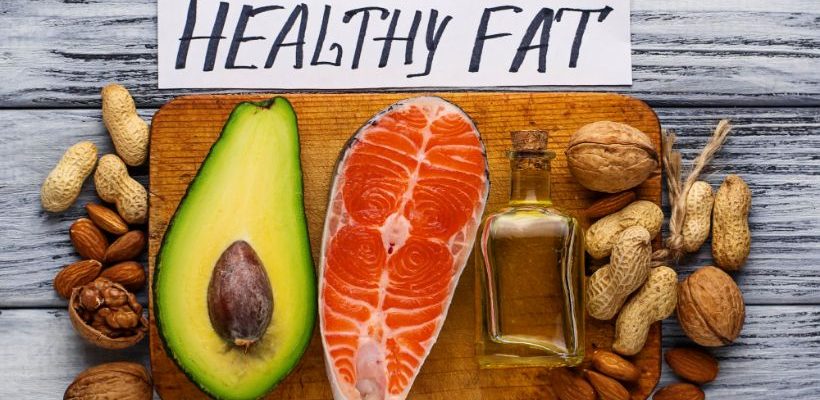
For many of you, fat has been a dietary villain for years. It is often linked to health issues like obesity, heart disease, and high cholesterol. But that is not the only case! A research paper addressing facts about fats stated the need for regular intake of fat.
According to researchers, there are many health benefits of fats. That is why there is a need for you to consume it. Dr. David Perlmutter, in his Grain-Brain, talked about something similar. He argued there are health issues that stem from inflammation caused by carbs. It includes Anxiety, Chronic Headaches, ADHD, Depression, and Alzheimer’s.
Now, let’s begin with understanding what the function of fat is before addressing the benefits of fat.
Functions of Fats
There is a myriad of functions of fats in our bodies. It provides your body with energy. Fat acts as a fuel source during activities. It aids your body in absorbing essential vitamins like A, D, E, and K. Fat promotes overall health. It also cushions and protects your organs. It acts like a natural shock absorber.
Other than these functions, fats contribute to cell structure as well. It forms cell membranes crucial for cell function. Fat assists in hormone production. It plays a key role in regulating various bodily processes. For instance, it supports brain function, as the brain consists largely of it. Lastly, the role of fats also includes maintaining healthy skin, hair, and nails by nourishing cells and tissues. There are two types of fats.
The Good and Bad
Fats come in various types. And, knowing which one is good or bad is key for a healthy lifestyle. So, let’s get into fat types below.
Good Fats
Good fats, also known as healthy or unsaturated fats, are beneficial for your health when consumed in moderation. They can contribute to various bodily functions and support overall well-being. Here are some examples of good fats:
Monounsaturated Fats: Found in foods like olive oil, avocados, and nuts, these are heart-healthy fats. These can help lower bad cholesterol levels in your body.
Omega-3 Fatty Acids: Abundant in fatty fish like salmon, these fats support heart health. It further reduces inflammation in the body.
Polyunsaturated Fats: This category includes essential fatty acids, such as omega-3 and omega-6 fatty acids. Sources of polyunsaturated fats include fatty fish (salmon, mackerel), flaxseeds, chia seeds, walnuts, and vegetable oils (like soybean and sunflower oil).
Bad Fats
Bad fats, also known as unhealthy or saturated fats, and trans fats, are types of fats that, when consumed in excess, can contribute to health problems. Here are examples of bad fats:
Saturated Fats: These fats are typically solid at room temperature and are found in animal-based products and some tropical oils. Present in butter and red meat, these fats are okay in moderation. But they can increase bad cholesterol levels if consumed excessively.
Trans Fats: Trans fats are artificially created fats through a process called hydrogenation, commonly used to solidify liquid oils. Commonly found in processed foods, trans fats are best when avoided. It is due to their negative impact on cholesterol levels. They also increase the risk of heart disease.
Benefits of Dietary Fats for Optimal Health
Embracing A Balanced Diet with Essential Fats for Enhanced Brain Function
“Did you know up to 70 percent of our brain is made of fat?” – Wexner Medical Center, Ohio State University
It is quite evident that boosting your brain power demands the right nutrition. That is why it is crucial to include fats in your diet. You should not limit yourself to only omega-3s. Try to incorporate essential fatty acids from sources like avocados, nuts, and salmon.
Natural animal fats are also good for your health. A lot of people might have told you to avoid it for years. But these fats play a role in absorbing and transporting vital vitamins like A, D, E, and K throughout your body. These vitamins are extremely important for vital organs, including the brain. Ergo, it further highlights the benefits of fats even more.
The Crucial Role of Saturated and Omega-3 Fatty Acids in Respiratory Well-being
Did you know that the substance coating your lungs is mainly saturated fat? You see, it contributes to the proper functioning of your lungs. Certain fats like Omega-3 fatty acids are significant for your lungs. They reduce inflammation in the airways. This way they promote easier breathing. That is why research suggests that diets rich in these fats can help improve lung function.
Similarly, premature babies who lack this substance are given surfactants. Omega-3 fatty acids help their lungs to perform well.
Connection Between Dietary Fats and Robust Immune Function
Fatty acids and your immune functions share a strong bond. This is because having enough dietary fat is crucial for your immune health. Like, the saturated fats in coconut oil and butter are key players. If your white blood cells do not have enough of it, they might struggle to fight invaders. These invaders are bacteria, fungi, and viruses. Thus, this could affect how well your immune system works. So, make sure you incorporate saturated fats in your diet to support your immune function.
The Essential Role of Fatty Acids in Cultivating Healthy and Hydrated Skin
Including essential fatty acids in your diet can contribute to skin health. For example, omega-3 and omega-6 are crucial in maintaining skin integrity and moisture. It is because these fats are vital to produce skin’s natural oil barrier. Thus, it helps keep your skin hydrated and supple. Undoubtedly, it is among the most unknown healthy fats benefits.
Additionally, your cellular membrane has a lot of fat. And your skin is built up of many cells. So, if you do not consume enough fat, your skin could get chapped and dry. This might lead to infections as well. Having an adequate amount of fat can help keep your skin healthy and prevent it from getting chapped.
5) Embracing Healthy Fats for Optimal Cardiovascular Well-being
Choosing and adding healthy fats to your diet is beneficial for heart health. In the Pacific Isles, a study focused on people consuming 60% saturated fats from coconut oil. Surprisingly, the incidence of heart disease was nil there. So, having fats in your diet could potentially promote heart health.
Final Words
Overall, fat nutrients give you more energy than carbs. This way, it helps you stay energized and eat less. Yet, you should avoid harmful trans-fats. Now that you know these benefits, why not enjoy energy-rich foods daily? No matter whether it is salmon, walnuts, butter, or olive oil. Hope this blog helps!
References
2021. Know the facts about fats. Harvard Health Publishing. https://www.health.harvard.edu/staying-healthy/know-the-facts-about-fats
2018. “Grain Brain”: How your food choices can impact your brain’s destiny. CBS news. https://www.cbsnews.com/news/david-perlmutter-neurologist-grain-brain-gluten-sugar-impact/
2023. Good Fats, Bad Fats, and Heart Disease. Healthline. https://www.healthline.com/health/heart-disease/good-fats-vs-bad-fats
2018. Boost your brain power with the right nutrition. The Ohio State University. https://wexnermedical.osu.edu/blog/boost-your-brain-power-with-the-right-nutrition
2023. Omega-3 fatty acids appear promising for maintaining lung health, study finds. RTI Internationals. https://www.rti.org/news/omega-3-fatty-acids-appear-promising-maintaining-lung-health-study-finds
1999. Fatty Acids and Immune Functions. National Library of Medicine. https://www.ncbi.nlm.nih.gov/books/NBK230960/
2000. Essential Fatty Acids and Skin Health. Oregon State University. https://lpi.oregonstate.edu/mic/health-disease/skin-health/essential-fatty-acids
2001. Choosing heart healthy fats. Academy of Nutrition & Dietetics. https://www.in.gov/spd/files/HHE-HeartHealthyFats.pdf
Also Read
DISCOVERING 5 EFFECTIVE WAYS FOR PREVENTION OF ASTHMA
10 DANGEROUS EFFECTS OF STRESS ON YOUR HEALTH AND HAPPINESS
REVEALING THE MYSTERIOUS FACTS ABOUT SALT INTAKE
DISCOVERING THE BENEFITS OF HEALTHY RELATIONSHIPS ON HEALTH




